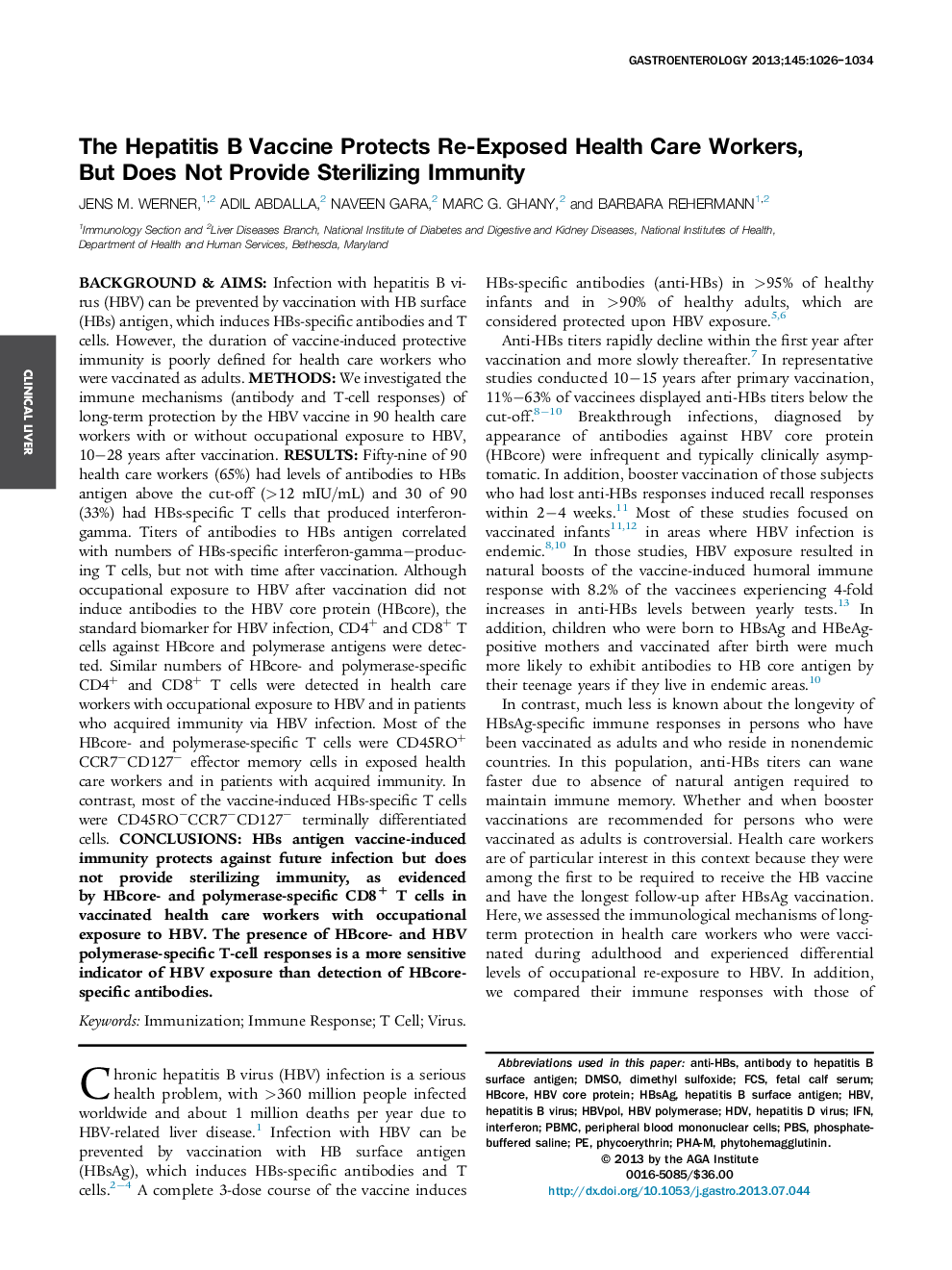| Article ID | Journal | Published Year | Pages | File Type |
|---|---|---|---|---|
| 6094846 | Gastroenterology | 2013 | 9 Pages |
Background & AimsInfection with hepatitis B virus (HBV) can be prevented by vaccination with HB surface (HBs) antigen, which induces HBs-specific antibodies and T cells. However, the duration of vaccine-induced protective immunity is poorly defined for health care workers who were vaccinated as adults.MethodsWe investigated the immune mechanisms (antibody and T-cell responses) of long-term protection by the HBV vaccine in 90 health care workers with or without occupational exposure to HBV, 10â28 years after vaccination.ResultsFifty-nine of 90 health care workers (65%) had levels of antibodies to HBs antigen above the cut-off (>12 mIU/mL) and 30 of 90 (33%) had HBs-specific T cells that produced interferon-gamma. Titers of antibodies to HBs antigen correlated with numbers of HBs-specific interferon-gammaâproducing T cells, but not with time after vaccination. Although occupational exposure to HBV after vaccination did not induce antibodies to the HBV core protein (HBcore), the standard biomarker for HBV infection, CD4+ and CD8+ T cells against HBcore and polymerase antigens were detected. Similar numbers of HBcore- and polymerase-specific CD4+ and CD8+ T cells were detected in health care workers with occupational exposure to HBV and in patients who acquired immunity via HBV infection. Most of the HBcore- and polymerase-specific T cells were CD45RO+CCR7âCD127â effector memory cells in exposed health care workers and in patients with acquired immunity. In contrast, most of the vaccine-induced HBs-specific T cells were CD45ROâCCR7âCD127â terminally differentiated cells.ConclusionsHBs antigen vaccine-induced immunity protects against future infection but does not provide sterilizing immunity, as evidenced by HBcore- and polymerase-specific CD8+ T cells in vaccinated health care workers with occupational exposure to HBV. The presence of HBcore- and HBV polymerase-specific T-cell responses is a more sensitive indicator of HBV exposure than detection of HBcore-specific antibodies.
